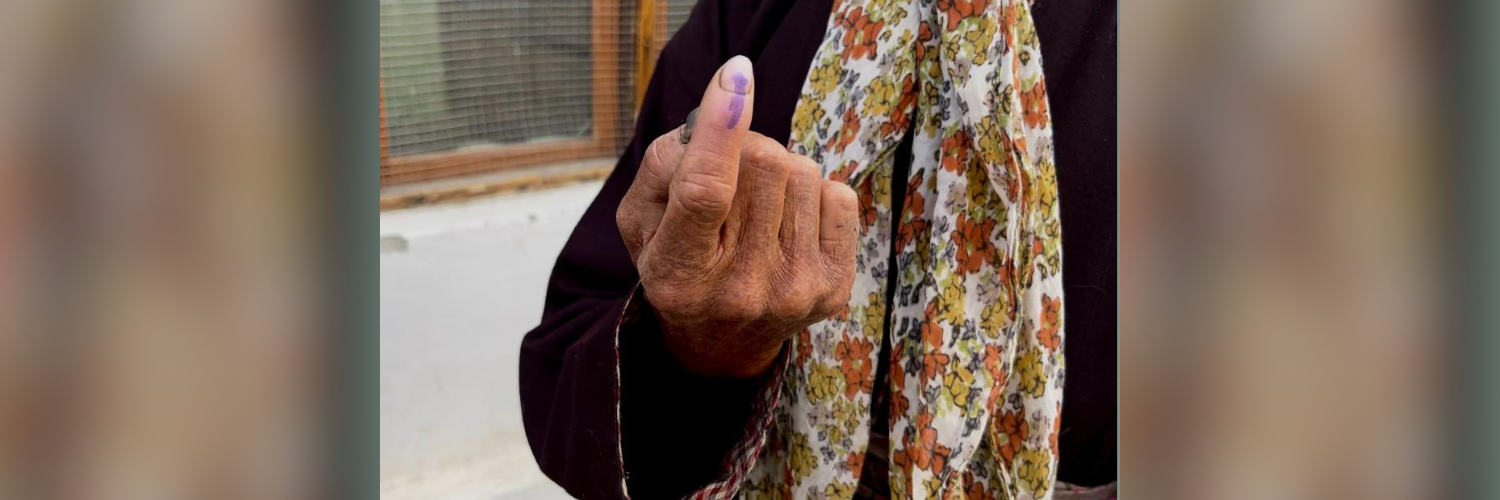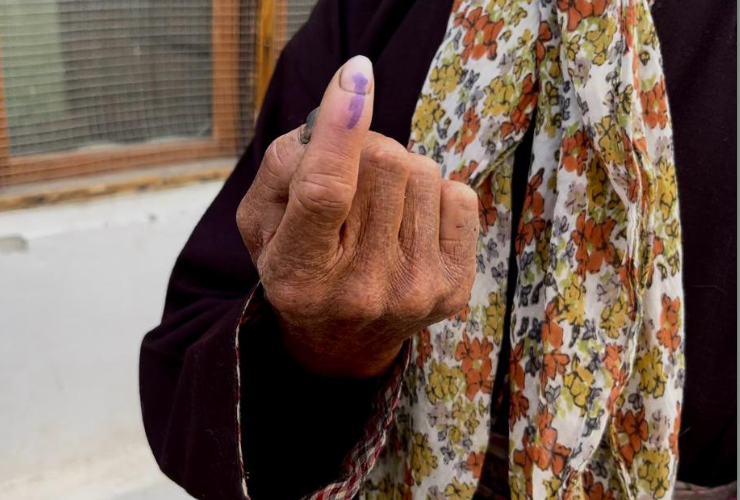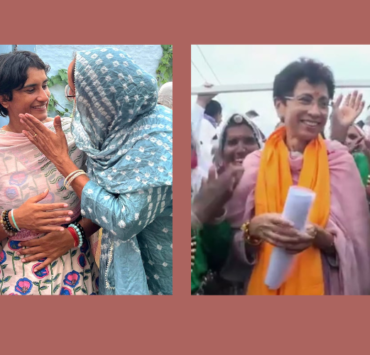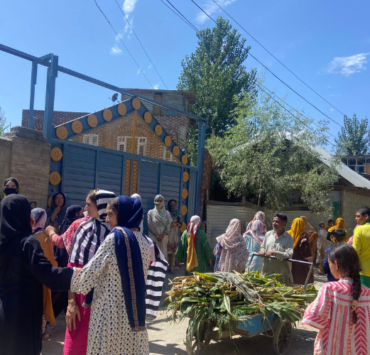
By Sehar Qazi

Voting has concluded in the historically significant assembly elections in Jammu and Kashmir and votes will be counted on October 8. The voter turnout recorded by the Election Commission of India (ECI) in each phase of the Assembly elections was 61.4 percent, 57.3 percent and 69.6 percent, respectively. Women across all age groups came out to vote in all three phases, despite some of them needing assistance to reach the polling stations or others having to stand for hours to vote.
As voters reached early morning at a polling station in Jammu, women voters spoke to media persons about their expectations and their concerns. Women, in both rural and urban areas have expressed concerns over unemployment, lack of healthcare facilities, inflation and other facilities. “I am here to vote for my children to get good jobs, educational scholarship for orphans, lower electricity tariff rates,” says a voter at Govt Hari Singh Higher Secondary School. Expressing concern over inflation and unemployment, women spoke briefly about increasing rates of basic household amenities, “Gas cylinder, vegetables, milk, everything is expensive. Rates are increasing every single day. We pay Rs 2500-3000 monthly electricity bill. We are in need of a strong representative who will understand our financial burden,” says a voter who arrives in a wheelchair at a polling station in Srinagar. “Unemployment has pushed youth to drug addiction and mental health issues in Kashmir and I want a better future for myself and for future generations. That is why I am here to cast my vote,” said a first-time voter for South Kashmir. “We want the government to provide employment to our youth here as they are suffering from depression. We want improvement in our irrigation system, education system, good roads, (and solutions to) electricity issues in our area,” says a woman voter in Handwara district after casting her vote for the second time.
It was raining heavily on voting day in Banihal, but women stood in long queues outside the pink-booth to cast their votes. “Everyone in my family is here to vote because we want to see some development here. It’s our right to vote and that’s why we are here, says a burqa-clad woman, who was drenched in the rain. She echoed a voter in Pattan, who said, “It’s our right to vote and I want a solution to our problems like unemployment, for roads, and proper facilities in schools and hospitals. In these ten years we now know the importance of voting and that’s why we are here.”
A video of a women voter was circulated widely in which she was requesting people to vote sensibly, “We need our representative to show humanity towards the community and not to think about themselves. We need a good representative who will stand for the rights of people here. We have suffered a lot in past years and now we want to live peacefully,” she was seen speaking to media persons. Two elderly women voters in Kupwara district had similar views, “We are here to vote; rest we leave everything to our representative,” they said smilingly.
As women choose to become politically active and vocal this time, their votes will be shaping the electoral outcome, pushing for more inclusive and responsive political policies to be formed by the upcoming government in the region.
The voices of women during elections provided a window into the evolving dynamics of gender in politics, particularly how women engage to assert their right and to shape the political narrative, to ask for solutions and put forward their expectations from the upcoming government of the region. Or as a woman from North Kashmir said succinctly as she walked to a polling station, “I will not waste my right to vote.”
Sehar Qazi is an independent multimedia journalist based in Jammu & Kashmir. Her stories focus on gender, health, refugee crisis, climate change, wildlife conservation, art and culture.
Edited by Nisha Susan




